Golfers want golf range finders and hunters go for the hunting/archery rangefinders.
That’s a simple rule! What if you love both sports? Should you then buy separate devices? Do hunting range finders work for golf as well?
It’s a good idea, but you can’t deny the potential pain of the cost. How about one device for two sports? Better, of course!
Now, the question is, can hunting range finders also work for golf? The answer is yes, but you need to know something.
In this article, I’ll explain the whole point of buying a combination of golf and hunting rangefinder plus the considerable factors.
Read This, First!
Golf rangefinders put the focus on your closest target and acquire its pin from all other background objects. Bushnell has dubbed the mechanism ‘Pinseeker’ while Leupold has introduced ‘Pinhunter’.
So, you see the name of this technology varies from brand to brand with the core function being completely identical.
On the other hand, rangefinders come in separate variants for archery, target shooting, rifle hunting, etc.
In a nutshell, You can use a hunting rangefinder for golf. However, the golfing rangefinders are designed to focus on quick results but have trouble adjusting the focus. On the other hand, hunting rangefinders will give you hard time in golf as they are designed for ranges longer than a golf course.
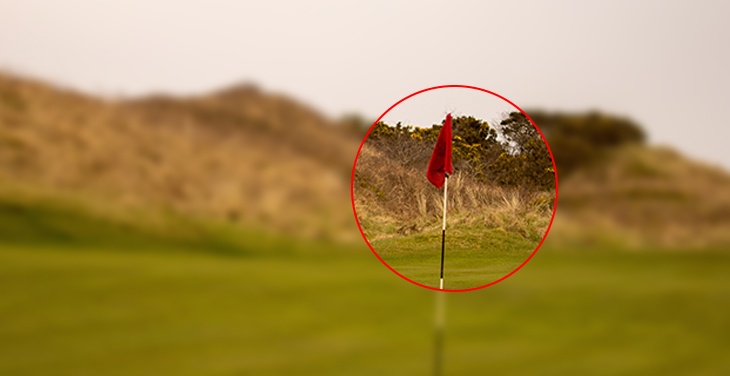
Frankly speaking, choosing from either of the two (hunting and golfing units) isn’t very tricky.
But, there are a lot of technicalities involved as you expect the benefits of both worlds but want to pay for one.
Since the purpose of this article is to help you, I’m simplifying the whole thing.
Do Hunting Range Finders Work for Golf: Factors to Check
As I answered above, you need to understand specific factors to get the essence of my reply.
In short, a hunting rangefinder works for golf if it meets the following conditions.
1. Target Modes
It’s what makes a big difference.
First Target for golfing…
Distant Target for hunting…
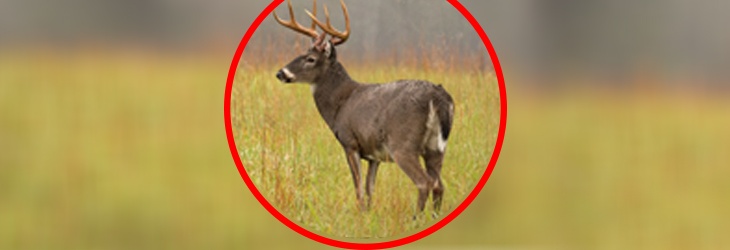
So, you see two different priority modes are designed exclusively for these two sports.
- Hunting rangefinders ignore the nearest objects (both animate and inanimate) like trees, animals, bushes, and others. It aims at distant objects, so hunters find their targets lying at a distance.
- Contrarily, a golf rangefinder ignores any distant object (both animate and inanimate objects) like trees and fellow golfers. It seeks and discovers the nearest pin (object) to help users locate their target.
Therefore, CONDITION #1 is that your rangefinder should incorporate both the distant and nearest target modes.
2. Yardage Calculations
It’s quite a condition that any device, be it for hunting or golfing, should meet.
- Hunting rangefinders need to have reflective properties to offer readings for up to 1000 yards including the target located anywhere within the reflectivity readings.
- However, a decent unit should be able to overcome typical difficulties like a heat mirage, changing weather patterns, the presence of non-reflective surfaces, etc. while offering distance readings.
- Golf gadgets offer distance reading for up to 600 yards including anywhere from 150 to 400 yards to the flag.
Therefore, CONDITION #2 dictates that your rangefinder offers reflective readings for at least 600-700 yards.
3. Angle Compensation
Let me tell you why it’s a crucial subject to think about.
Assume that you got your target ranged at roughly 350 yards. But, the reality is the target might not be exactly 350 yards from your location.
The number 350 helps you get how much you need to compensate for the shot, but it doesn’t literally tell you what your shooting angle should be.
Did you ever hear of horizontal distance?
It’s the thing that helps the hunter with the aiming process.
If the angle and/or distance to the target changes by any means, the actual gap between the horizontal distance and the line of sight changes (typically becomes wider than before).
Here comes the nicety of an angle-compensating rangefinder.
This leads you to CONDITION #3 that your rangefinder must offer horizontal distance readings and include angle compensation features to help you with golfing and hunting.
4. Construction
Now is the time for some physical properties!
Since you’ll be using your device in a wide variety of circumstances and more frequently than once/twice a week, it has to be compact, weatherproof, durable, and able to take the daily wear and tear.
In addition, I want to talk about another thing, the display…While many golfers/hunters choose LEDs, I suggest you should pick them with caution.
So, CONDITION #4 is that you choose an LCD display with a bright backlight. I know it’s not easy to find such a favorable hybrid.
You should be proactive to find one since LEDs might deprive you of clear readings on a thrilling hunt during the darkness of the evening.
But, LCDs won’t, plus you can enjoy using the device while playing golf under a sunny sky since there’s a backlight to help you.
I’m Sorry to Say…
A combination of golf and hunting rangefinder might not be able to give you everything that a golf and hunting rangefinder would offer combinedly.

Golf rangefinders, especially the advanced ones offer simple reticles, club suggestions, short-distance readings, swing rate measurements, etc.
Hunting rangefinders offer ballistic data, extended yardage, advanced reticles, camouflage covers, etc.

In practice, you may not get the most out of a separate hunting or golfing rangefinder.
However, the cost, diverse technicalities of separate devices, and hassles to carrying both devices are the reasons many hunters come golfers rely on a combination.
I hope I’ve made my points clear! Now you should be able to answer questions like “do hunting range finders work for golf as well, or can you use a golf rangefinder for hunting” with ease.
Thanks for reading this far. Feel free to write to me with further questions or any suggestions.

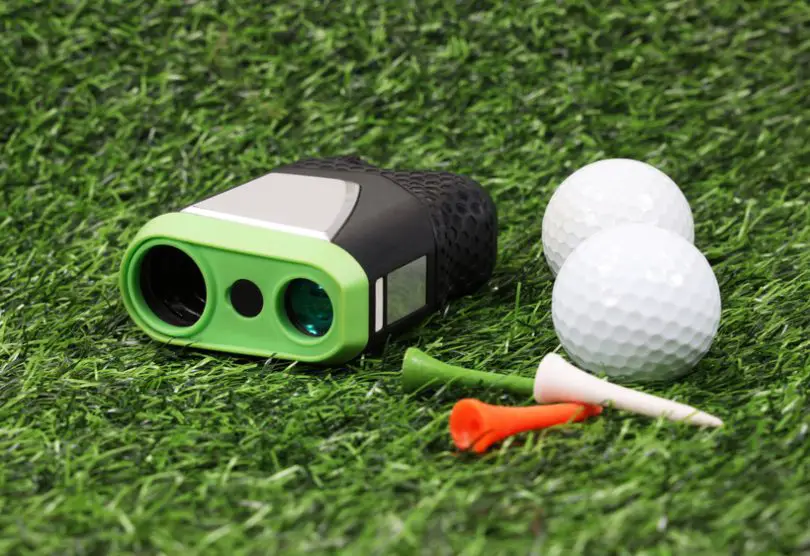



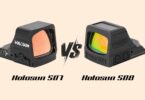
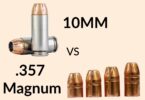


Leave a Comment